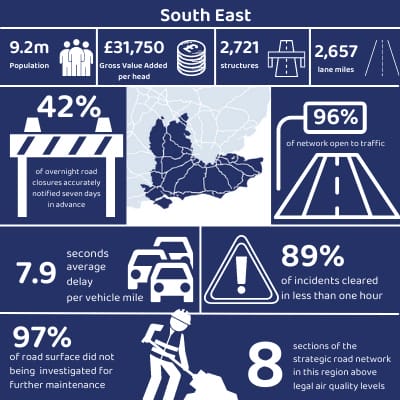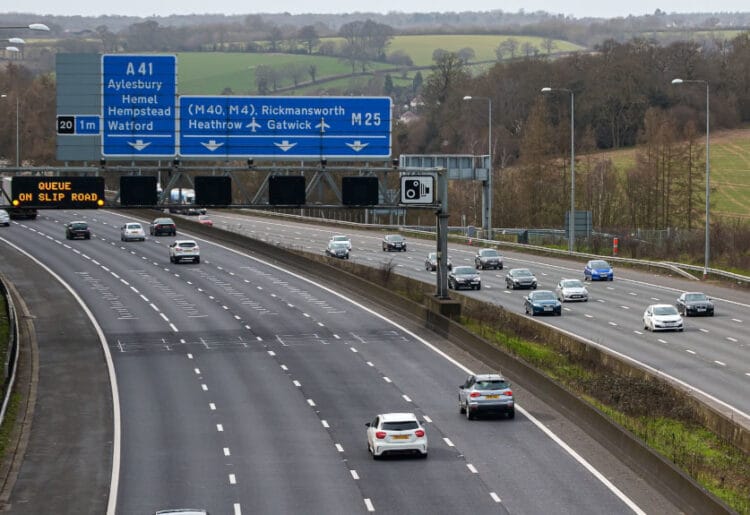THE SOUTH East is the worst region in the country for notifying people of motorway road closures.
New data released last week by independent monitor the Office of Rail and Road placed the region at the bottom of its Benchmarking National Highways report. This outlines the regional differences in performance across National Highways’ motorways and major A roads in England, and is part of a drive for greater transparency.
In one of the indicators reported for the first time, ORR saw significant differences across England in the accuracy and timeliness in the notification of overnight road closures.
National Highways is tasked with ensuring that, nationally, 90% of overnight road closures are published accurately, seven days in advance, by 2024-25. However, just over half – 55% – were correctly revealed in 2020-21.
And in the south east that was just 42% of closures. The Midlands was top, with 66%.
ORR also saw the South East – the most heavily used trafficked region of the road network – continue to suffer the highest levels of delays than any other region.
Road users in the South East already suffer the least reliable journeys and spend more time in delays due to roadworks, with an average delay of 7.9 seconds per vehicle per mile against 6.7 seconds nationally.
The region did exceed the national target (86%) for clearing incidents, with 89% cleared within less than one hour.

ORR’s report found the South East also exceeded the target of 95% of road surfaces not requiring further investigation (97%).
ORR also reports 31 sections of the strategic road network were above the legal air quality levels across the country in 2020-2. Eight of these – nearly a quarter of the total – were in the south east region.
ORR says expects National Highways to make improvements.
Sneha Patel, Deputy Director of Highways at ORR said: “Our annual benchmarking report this year has led to greater transparency around National Highways’ performance and will incentivise its regions to improve further.
“We’ve now got a four-fold increase in the number of performance indicators that National Highways must report on: that’s a considerable step forward.
“However, there continue to be significant regional differences and we expect National Highways to apply the lessons it has learned about what works well in one region to other parts of the country as part of the steps it will take to meet all national-level targets by 2024‑25.”























